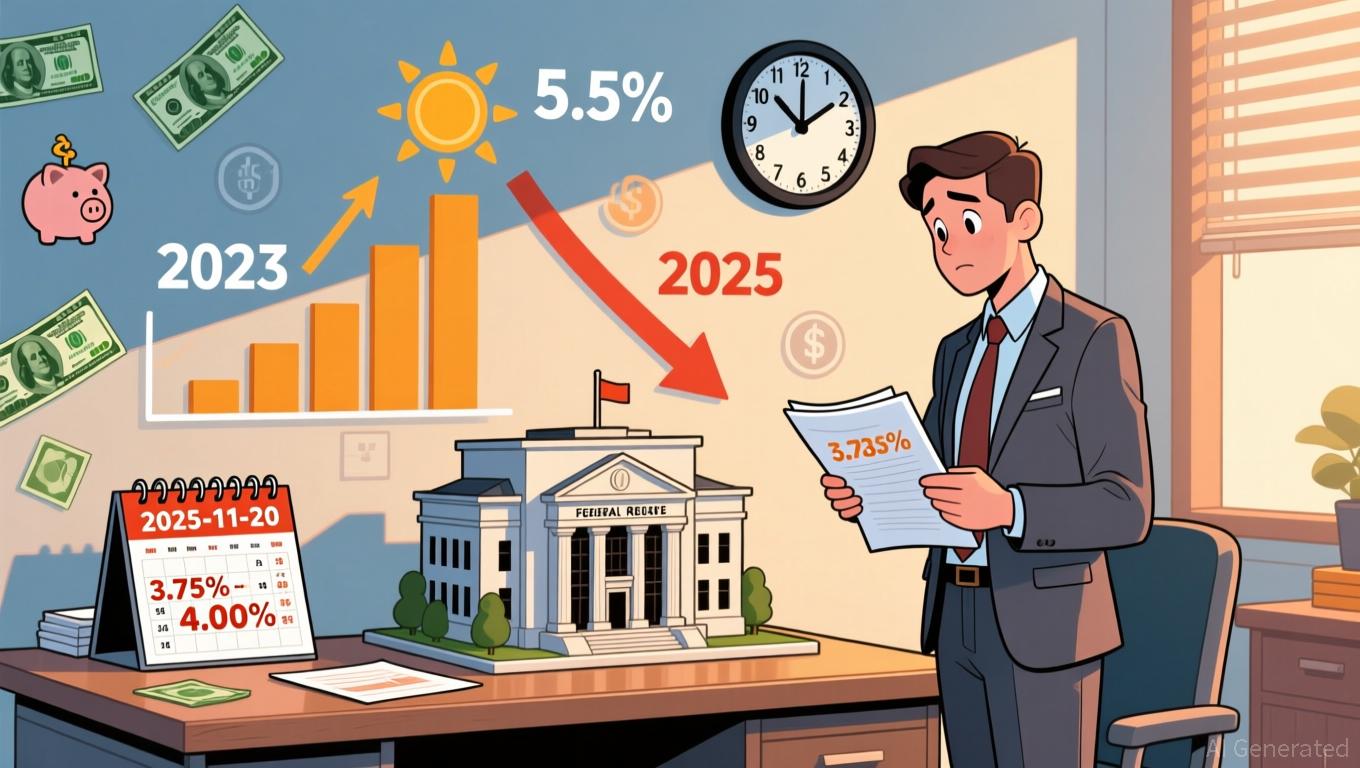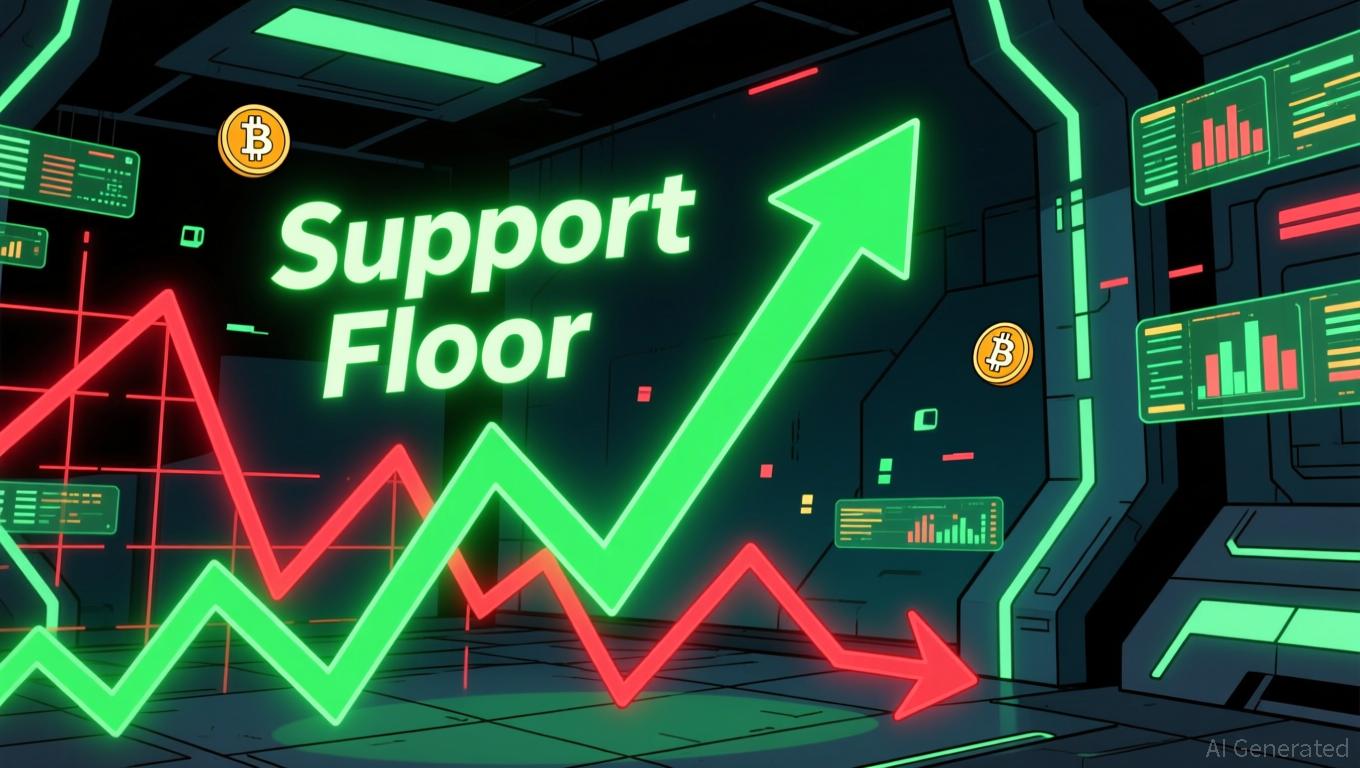Bitcoin News Update: Texas Creates Inaugural State Bitcoin Reserve, Setting the Stage for Institutional Embrace
- Texas allocates $10M to establish the first state Bitcoin reserve, investing $5M in BlackRock’s IBIT and planning direct purchases once infrastructure is ready. - The move, part of Governor Abbott’s crypto-friendly agenda, mirrors similar efforts in Wisconsin and New Hampshire and aligns with federal discussions under President Trump. - Institutional adoption is accelerating, with Harvard and Abu Dhabi’s Al Warda increasing IBIT holdings, signaling growing confidence in Bitcoin as a strategic reserve ass
Texas has dedicated $10 million to create a state-run
Texas’ investment comes as Bitcoin (BTC) is consolidating near a crucial weekly support range between $78,000 and $79,000. This zone has been identified by traders and analysts as a possible “invalidation” area: a sustained drop below could indicate a reversal of the prevailing upward trend, while a bounce would reinforce bullish sentiment. At present, BTC is trading close to $87,000, having recovered from a major decline from $130,000 and rebounding off a long-term ascending channel. According to Profit Blue, a trader reviewing the weekly Bybit chart, buyers have entered the market as prices reached the mid-$80,000s, helping to preserve the current uptrend structure.
The Texas initiative is part of a larger movement among institutions to embrace Bitcoin. Harvard University’s endowment recently revealed a $443 million investment in IBIT, while

This $10 million commitment also underscores the political and economic implications of state-level cryptocurrency reserves. Some critics warn that ETFs like IBIT carry counterparty risks, while supporters argue they provide a stepping stone to direct asset ownership. Texas’ strategy echoes ongoing federal debates, including proposals from former President Donald Trump for a national Bitcoin reserve, although such measures have yet to receive congressional approval. As states like Arizona and New Hampshire consider similar approaches, Texas’ actions could serve as a model for how governments address the challenges of cryptocurrency regulation and long-term asset stewardship.
At the same time, institutional adoption of Bitcoin is gaining momentum. Universities, sovereign wealth funds, and state governments are increasingly treating Bitcoin as a core reserve asset within their investment portfolios. The Texas Blockchain Council’s partnership with financial professionals and industry leaders highlights Bitcoin’s growing acceptance in mainstream finance. Despite ongoing regulatory uncertainty, the trend is unmistakable: digital assets are becoming a standard part of long-term investment strategies. As more states weigh their options, the real question is not whether governments will adopt Bitcoin, but rather when and in what manner it will be incorporated into public financial systems.
Disclaimer: The content of this article solely reflects the author's opinion and does not represent the platform in any capacity. This article is not intended to serve as a reference for making investment decisions.
You may also like
Post-peak CD returns threatened by Fed reductions—investors hurry to lock in rates
- CD rates peaked at 4.20% APY in late 2025 but declined as Fed rate cuts reduced federal funds to 3.75%-4.00%. - Short-term 12-month CDs remain competitive at 3.92% APY, outperforming longer-term products amid expected further Fed cuts. - Analysts urge investors to lock in current rates before December's anticipated third cut, as 2025's three reductions follow 2024's three cuts. - Strategic allocation to high-APY CDs maximizes returns, with $100k in 12-month terms generating $3920 vs. $3600 in 24-month te

Bitcoin News Update: Federal Reserve's Shift to Dovish Stance Sparks Digital Asset Rally Amid Supply Constraints, BTCM's Second Phase Poised to Capitalize
- Fed ends quantitative tightening, boosting markets as Bitcoin Munari (BTCM) enters $0.22 Phase 2 presale. - Dovish pivot with inflation below 2% drives risk-on sentiment, pushing December rate cut odds above 70%. - BTCM's fixed-supply model (21M tokens) and 2,627% projected return align with scarcity-driven crypto trends. - Structured presale pricing ($0.10→$0.22) and Solana's $58M daily ETF inflows highlight institutional adoption.

Bitcoin News Update: Report Reveals Bitcoin’s Future Depends on Macroeconomic Transparency and Trust from Institutions
- Bitcoin's 36% October drop sparks debate over recovery potential amid institutional sell-offs and ETF divestment risks. - Institutional holders (1,000+ BTC) reduced exposure by 1.5%, contrasting retail exits, mirroring 2019-2020 redistribution patterns. - Key support at $89,400-$82,400 and Fed rate cut odds (69.3%) highlight macroeconomic influence on Bitcoin's risk-on/risk-off dynamics. - Whale accumulation (100-10,000 BTC) contrasts retail selling, but 1,000-10,000 BTC cohort distribution remains a bea

The Growing Interest in Socially Responsible Investing (SRI) within Legal and Public Interest Fields
- SRI is shifting toward education and legal sectors to address systemic inequities, merging financial returns with social impact. - UC Berkeley's Public Interest Scholars Program funds law students for public service, ensuring measurable societal benefits through accountability frameworks. - Digital tools and ETFs like ESGU/VFTAX enhance SRI transparency, enabling investors to track real-time social impact in education and legal equity initiatives. - Institutional commitments to IDEAA principles and partn
